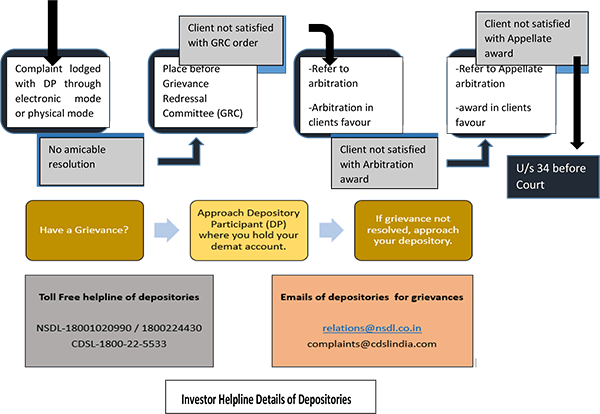Most people in India are familiar with the word ‘Sensex’ and understand that it is related to the domestic stock markets in India. However, most will not be able to answer the question ‘What is Sensex?’ The word Sensex is the short form of the Sensitive Index. It is an index which plays an important role in the Indian financial landscape.
If you want to learn more about the Stock market, then one of the key tools to do so is the stock market index. In this blog, we will introduce you to the concept of the Stock market and Sensex.
What is a Stock Market Index?
A stock market index is a representative of the performance of a set of selected stocks in a given stock market. The index helps investors analyze and gauge the overall health and direction of the stock market for a specific industry or sector.
The index value is based on the calculation of the stock prices of predetermined companies. Upward or downward changes in the index value help indicate the market’s growth and movements.
What is Sensex?
The benchmark index of the Bombay Stock Exchange in India is called the Sensex. It is not only a financial indicator for India but also reflects the economic health of India. The Sensex comprises of 30 of the largest and most actively traded stocks on the BSE and provides a gauge of India’s economy. It is float-adjusted and market capitalization-weighted.
BSE Sensex was introduced in 1986 by the Bombay Stock Exchange of India. It is made up of the top 30 companies in India representing various sectors like technology, finance, manufacturing etc. These 30 companies are referred to as “blue-chip” stocks and are some of the most stable and influential players in the Indian stock market.
The acronym BSE Sensex for Bombay Stock Exchange Sensitive Index was coined by analyst Deepak Mohanti. Since it includes the top 30 most traded companies on the Bombay Stock Exchange it is also sometimes known as the BSE 30. The composition of the Index is reviewed biannually, in the months of June and December.
How is the Sensex Calculated?
The Sensex is a weighted Index, meaning that out of the 30 stocks, some companies have more influence on the Index value as compared to others. The Sensex is calculated using a free-float capitalization method. Similar to the market-capitalization weighting method, the companies are weighted based on their share of the total market capitalization of the index.
The only difference is that unlike, the market-capitalization method, in the free-float capitalization method only the shares that are freely available for trading are considered for calculations. Restricted shares or shares held by the company’s insiders won’t be considered for the calculations.
The Sensex is calculated using the formula:
Sensex = (Sum of Free-Float Market Capitalization of the 30 companies / Base Value) x 100
Wherein, the base value for the Sensex is set at 100 on April 1, 1979.
Understanding Sensex Movements
The Sensex can help investors and analysts to know the pulse of the Indian Stock Market. The sentiments of the Stock market are interpreted by the movements in the Sensex. When the Sensex moves up, it is a sign of bullish sentiment in the market, indicating that the investors are confident that the Indian economy is doing well.
Similarly, when the Sensex moves down, it is a sign of bearish sentiment, suggesting that the investors are losing confidence and are concerned about the performance and state of the Indian economy.
Some of the factors that influence the Sensex’s movements are:
- Company Performance: Announcement or publishing of earnings reports, financial results or any news pertaining to the 30 Sensex companies can have a significant impact on the Sensex.
- Macroeconomic Factors: Changes in economic factors like GDP growth, inflation rates, and government policies can play an important role in determining the Sensex levels.
- Global Events: Sensex movements are highly influenced by the global financial markets. Any unforeseen event or positive news or developments in the global market will have a direct impact on the Sensex.
- Public Sentiments: Investor sentiments and their confidence or outlook for the stock market can cause major shifts in the Sensex levels.
- Foreign Capital Investments: The amount of foreign capital investments coming to India and the faith of foreign institutional investors in the Indian economy has a huge impact on the Sensex.
How Sensex can help plan your investments and portfolios?
Often the Sensex is considered as a benchmark by Investors to plan their investments in the stock market and to analyze the performance of their investment portfolios. If the portfolio returns are consistently outperforming the Sensex, it is a sign that your investments are earning you positive returns.
However, it is important to remember that the Sensex is not always the right market indicator representing your personal investment goals. Sensex is a broad market indicator, and every person’s financial objective or goal may be specific. Hence one should always thoroughly research the stocks and consider your objectives before making any investment decisions.
Grow your investments with Gainn Fintech
If you are looking at investing in Indian Financial Markets, then the Sensex is a valuable tool. It can provide you with insights into the market conditions and the broader economy. Understanding how the Sensex is calculated and what factors affect the Sensex movements can help investors make informed decisions.
However, always remember that the stock market involves risk, and investing in the stock market should be done after thorough research or under the guidance of an experienced financial advisor.
We at Gainn Fintech are dedicated to serving the needs and requirements of all kinds of clients. Whether you are a passive investor looking for long-term returns or are an active stock market trader looking for an efficient trading system, we can help you.
We are committed to providing our clients with the best resources and practices to support their investment needs. We aim to provide transparent and efficient trading solutions to our customers to help them grow their wealth.




